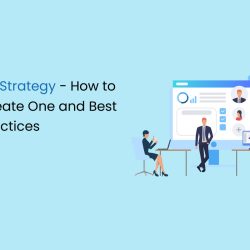Behind every successful entrepreneur, there is a creative spirit that ideated a concept that was both profitable and feasible. It is said that the difference between the good and the best is in the execution, but when it comes to businesses, ideation is the first step towards creation. If you are waiting for inspiration to hit you, this is it. This article brings you the best list of small business ideas that have been curated after careful consideration of the current market trends and economy. This could be your calling to an independent life!
The Concept of Small Businesses
To start with the basics, let’s first understand what small businesses mean by definition. Small businesses are small-scale enterprises that involve lesser capital, labour and resources. They work and generate products and/or services for a smaller audience.
In a country like India, small enterprises can be the backbone of the economy and a means for people to improve their lifestyle and earn a decent livelihood. They create a ripple effect when we talk about their social contribution to the community.
- Employment Opportunities: Small businesses are small-scale, but they generate a good number of jobs for the people in the demographic and skillset. In the current economy, small-scale enterprises contribute greatly to social welfare by providing livelihood to skilled and unskilled workforce.
- Promotion of Entrepreneurial Spirit: Any amount of success that is achieved by a small business is celebrated by everyone as it offers motivation and encouragement for other people to undertake similar endeavours. They encourage risk-taking, which in turn promotes business acumen and fosters a culture that is not afraid of innovation and the creation of new opportunities.
- Prosperity of the Local Communities: Small-scale businesses create means for economic mobility that eventually break the traditional barriers. This shattering of the glass ceiling has a butterfly effect on the future development of that demographic area. Small businesses are more actively engaged in the community, contributing to the improvement of their quality of life.
Advantages of Small Businesses
Small businesses enjoy distinct advantages over large corporations, making them agile and customer-centric:
Agility and Flexibility
Small businesses thrive on their nimbleness. With streamlined decision-making processes and fewer bureaucratic layers, they can swiftly respond to market changes. This agility grants them a competitive edge, enabling them to adapt rapidly to evolving circumstances.
Stronger Customer Relationships
The personalised touch of small businesses fosters robust customer relationships. Their intimate size allows for genuine connections, leading to enhanced customer loyalty. By tailoring experiences, these businesses create a sense of belonging, encouraging repeat business and customer satisfaction.
Innovation and Risk-Taking
Small businesses embrace innovation and take bold risks. Freed from the constraints of corporate bureaucracy, they can experiment, leading to the creation of novel products and services. This innovative spirit propels them forward, offering a unique competitive advantage in the market.
What Makes a Good Small Business Idea?
Now, this is a million-dollar question. We have talked about how vital of a role a relevant business idea has on the general future of the venture. What makes an idea viable? Here’s what you should be considering:
- Expertise Utilisation: Opt for a business idea aligning with your expertise to reduce training needs. Utilising your existing skills ensures confidence in service delivery and saves on training costs.
- Minimal Setup Expenses: A strong idea demands low initial investment. Whether it’s a website domain or a desk for your workspace, keep setup costs minimal. Cost-effectiveness is key.
- Inventory and Supply Management: Choose ideas requiring minimal inventory or supplies. For physical goods, consider drop-shipping or small-batch production. Streamlining supply management saves time and resources.
- Online Foundation: The best ideas operate online, offering flexibility and reduced commuting costs. Conducting business from your computer enhances convenience and work-life balance.
- Scalable with Few Resources: Ensure your idea is manageable solo. Small businesses often start with limited resources, so pick a venture that can be sustainably managed by a small team or even a single person.
Online Business Ideas
One of the most famous names in the list of startups that have made it big is Airbnb. Its founder, Brian Chesky, commented on how the greatest idea is the one that resolves an issue in your day-to-day life. One cannot simply sit and think of good ideas that may turn into big enterprises. What makes an idea relevant is how effective the solutions to a relatable problem are.
If you are with Brian and have already found a solution to your problem, you are very well on the way to becoming the next big thing in the industry. Below, we have talked about the best ideas to start your next venture online.
1. Personal Training

Begin your personal training venture by offering in-home consultations, tailor-made nutrition plans, and exercise routines. Engage your community with local boot camps. Utilise social media, especially Instagram, to share motivational quotes, free workout videos, and delicious snack ideas – a strategy favoured by fitness experts in today’s digitally charged space.
Starting small is fine; gradual growth is key. Take the example of MOURfit, a successful personal training business in Indianapolis. It began in a shared gym and expanded into a private facility, now providing group fitness, personal training, and nutrition services.
To kick-start your personal training business, obtain certification. If you have an unrelated degree, consider the nationally accredited NASM-CPT certification, accessible with a high school diploma. This certification paves the way for your fitness journey.
2. Freelance Translation

Do you speak a foreign language fluently? Consider starting a translation service. Specialising in a specific field like medical or financial translation can cater to niche needs in your community.
To venture into translation, you should be proficient in at least two languages, ideally at a near-native level. While no specific credentials are mandatory, obtaining certification, such as from the American Translators Association, can lend credibility to your business and attract clients.
Before certification, you can enhance your skills through online courses, providing a solid foundation in translation basics.
3. Content Creation

Individuals with more than ten thousand followers on platforms like Instagram, YouTube, podcasts, and TikTok have the potential to transform their accounts into thriving online businesses that generate passive income.
As a content creator or influencer, your earnings aren’t limited to sponsored partnerships alone. You can monetize your audience through various avenues, including Instagram Subscriptions, allowing companies to advertise on your YouTube channel, or creating exclusive paid newsletters.
When diving into this entrepreneurial journey, choose a niche that aligns with your passions, whether it’s thrifted fashion, work-from-home hacks, or industry insights. Master the art of being a social media influencer and digital creator, and organise your content through a well-planned social media calendar.
The beauty of this online business idea lies in its low overhead costs – all you need is dedication and enthusiasm for crafting engaging social media content. So, enjoy the process, have fun, and watch your online business flourish!
4. Online Tutoring

Whether you excel in mathematics, are a piano virtuoso, or have a profound love for Shakespeare, there’s undoubtedly someone out there who could benefit from your expertise and is willing to pay for it. Starting a tutoring business can be both rewarding and lucrative.
Begin by showcasing your services through local schools, community colleges, community centres, and social media platforms to reach potential clients and establish a customer base.
To kickstart your tutoring venture, consider gaining experience by volunteering or teaching friends and family. Simultaneously, you can immediately start by advertising your services locally and online, and even create a tutoring website to broaden your reach.
It’s crucial to define your niche within the tutoring realm. Will you provide in-home tutoring or establish a local tutoring centre? Which specific subject or subjects will you specialise in? Prepare comprehensive handouts, utilise textbooks, and be well-versed in online resources that cater to your student’s unique learning style. Offering tailored and high-quality tutoring can help you build a strong reputation and a satisfied clientele.
5. Consultancy

If you possess substantial expertise in a particular field, consider venturing into the realm of consulting. Whether your strengths lie in proficient hiring practices, mastering SEO strategies, or leading sales teams to substantial success, your knowledge is a valuable commodity. Position yourself as a consultant, extending your expertise to assist others, and charge competitive rates for your services.
Before diving into the consulting business, conduct thorough research. Some consulting niches are highly competitive, while others offer more opportunities for newcomers. Utilise keyword research tools to gauge the demand for your specific expertise. If your target niche is frequently searched or dominated by major corporations, breaking into the market might be more challenging. Understanding the demand, both in terms of keyword volume and local interest, can help you make informed decisions and find your footing in the industry.
6. Affiliate Marketing

Starting an affiliate marketing business is an excellent choice if you already own a website or blog that you want to monetize. If you’ve already invested in a domain name and created valuable content, transforming your platform into an affiliate marketing business can be a lucrative option.
Affiliate marketers craft blog posts and content embedded with affiliate links. When users click on these links, a cookie is stored in their browser, tracking their activity for a specific duration. If they make a purchase on the affiliated website, you earn a commission, often recurring if they buy subscription products.
The beauty of affiliate marketing lies in its flexibility and the multitude of programs available for entrepreneurs. These programs often provide ready-made advertisements and copy, making it easier for you to promote products effectively.
To establish a successful affiliate marketing online business, start by selecting the right blog niche. Whether it’s technology, household decor and organisation, or fitness, choose a niche that aligns with your interests and expertise. Then, explore affiliate marketing programs that offer products your audience genuinely cares about. By catering to your readers’ interests, you can build trust and create a sustainable income stream through your affiliate marketing endeavours.
Home-Based Business Ideas
Home-based businesses are supremely profitable as one saves on rent and other rental-related expenses. This particular medium of business especially took off during the pandemic as many people lost their jobs. Here, we have talked about some possible business ideas that have a high success rate.
1. Reselling

Becoming an online reseller is a viable option with just a dash of business acumen and some funds for investing in product stock, whether it’s from manufacturers or your own gently used items. This approach offers a low-touch yet high-performance method of generating passive income online.
Online resellers typically utilise platforms like Facebook Marketplace or Amazon Sellers to sell either their personal items or products sourced from manufacturers. Facebook Marketplace is incredibly accessible; you can start today using your existing Facebook account and list items you already own. Interested buyers can pick up items directly from your location, and if you prefer minimal interaction, leaving the item outside for them with online payment options is also possible.
Amazon Sellers, while requiring a bit more initial investment, offer higher potential returns and can be transformed into a lucrative passive income stream. With Amazon Sellers, you can purchase stock from various manufacturers, which is then stored in Amazon’s warehouses. When a customer purchases from your listings, Amazon handles the order fulfilment, and you receive a substantial cut of the profits. This method allows for a more hands-off approach, making it an attractive option for those seeking a more automated online business venture.
2. Content Writing

Becoming a content writer presents a lucrative small business opportunity, especially in our digital age where high-quality, engaging content is in constant demand. Whether you have a flair for storytelling, a passion for research, or expertise in a specific field, content writing can be your ticket to a profitable online venture.
Content writing offers incredible versatility. You can specialise in blog posts, website content, social media updates, marketing materials, or even technical documentation. For those adept at crafting persuasive copy or creating informative articles, content writing is a viable business idea that allows you to work from the comfort of your own home.
What sets content writing apart is its accessibility. You don’t need a brick-and-mortar office or expensive equipment to start. With a reliable internet connection and a laptop, you can dive into the world of content creation. Building a portfolio showcasing your writing skills is essential, serving as your resume for potential clients.
To succeed as a content writer, it’s crucial to understand your clients’ needs and tailor your writing style accordingly. Research the topics thoroughly, ensuring your content is not only informative but also engaging for the readers. Attention to detail, deadlines, and effective communication with clients are key to maintaining a satisfied clientele.
3. Print-On-Demand Products

Starting a print-on-demand (POD) business offers a seamless way to dive into the world of entrepreneurship, especially because most POD services provide an integrated storefront on their websites. This eliminates the need for a separate e-commerce site builder, making the process more frictionless.
In a POD online business, your creativity takes centre stage. You design unique artwork, and the print-on-demand provider allows you to feature these designs on various products such as t-shirts, hats, tote bags, phone cases, and more. The beauty of this model lies in its inventory-free nature; you don’t need to keep any stock. Instead, the POD provider prints the items only when a buyer places an order and then ships it directly to them.
All you need to start this small online business is a passion for design and a budget to cover the print-on-demand subscription cost, although many providers offer free services and deduct a portion of the sale. Familiarise yourself with design principles and colour theory, and you can embark on this business venture with ease, turning your creative ideas into profitable products.
4. Handmade Products

Being a maker – whether you craft soap, candles, sauces, or pottery – puts you in a unique position to explore a small business idea because you have control over product development and production.
Unlike some other concepts on this list, you’ll need to consider logistics such as shipping and inventory management. However, you can start modestly, perhaps on a per-order basis or with small batches, until you establish consistent sales.
Many successful makers on platforms like Shopify began with a home business idea. They started by selling on platforms like Etsy or eBay or directly to friends and family through word of mouth. As demand for their products grew, they transitioned into becoming full-time small-business owners.
However, it’s essential to be aware of regulations in your product category, especially if your products are ingested, inhaled, or applied to the skin. Compliance with safety standards and regulations ensures not only the quality of your products but also the trust and satisfaction of your customers.
5. Digital Journals

Creating downloadable digital products can be a lucrative small business idea, catering to individuals who prefer the flexibility of printing items like journals, templates, art prints, and designs at home rather than purchasing physical copies. This venture is especially appealing for those with design skills or the willingness to learn online design tools.
For instance, if you’re not particularly artistic, you can focus on creating functional templates for platforms like Canva. These templates can be customised by users to suit their specific needs, prioritising functionality and adaptability over intricate designs.
When developing digital products for home printing, it’s crucial to consider printing specifications such as recommended paper size, paper weight, and pixels per inch (PPI) for optimal print quality. Providing clear and detailed instructions ensures a positive customer experience, even when customers have control over the final output. By emphasising functionality and user-friendliness, you can carve out a niche in the digital products market, offering valuable solutions to a wide range of consumers.
6. Transcriptionist

The demand for transcription services has skyrocketed in recent years, especially with the rising popularity of video content. Even casual marketing videos often require transcription services, as I personally experienced last week when I was desperately searching for transcriptions.
However, it’s important to note that for specialised fields such as legal or medical transcription, certification is crucial. These certifications are attainable at a fairly affordable cost and are essential for ensuring accuracy and professionalism in these specific domains.
In the general transcription industry, professionals can expect to earn a decent income. On average, transcriptionists make around INR 3-5 lakhs per year, highlighting the viability of this profession as a stable source of income.
Low Investment Business Ideas
The prospect of starting a venture with limited capital outlay has never been more promising. The entrepreneurial realm is brimming with innovative ideas that require minimal investment, yet offer substantial returns. Here, we have compiled some ideas that you can start with minimal capital and without breaking the bank.
1. Dog Walking

A place where the love for pets knows no bounds, venturing into the world of dog care can be incredibly rewarding. Whether you’re dreaming of a bustling dog walking service, a grooming paradise, or a top-notch training center, the journey begins with a few fundamental steps.
First and foremost, your love for dogs and a genuine understanding of their needs will be your greatest assets. Being well-versed in various breeds, their temperaments, and training techniques can set you apart in the Indian pet care market.
Unlike many countries, India often has minimal licensing formalities, especially for small-scale pet businesses. While specific regulations may vary by region, focusing on local permits and certifications can usually get your venture up and running. It’s advisable to check with local municipal authorities or animal welfare boards for any specific guidelines in your area.
2. Pet Sitting

Are you a dedicated pet enthusiast? If the answer is yes, then the role of a pet sitter might be the ideal venture for you. Pet sitters play a pivotal role in ensuring the well-being and happiness of pets while their owners are away. Whether it’s hosting the pet in your home or making regular visits to their residence, your compassionate care can provide peace of mind to pet owners during their vacations.
To establish a successful pet-sitting business, it’s crucial to possess substantial experience in caring for various animals, including dogs, cats, and other household pets. Your expertise and genuine love for animals will be the cornerstone of your services. Additionally, consider identifying a specific niche within the pet-sitting domain based on your availability and preferences.
For those inclined towards long-term commitments, positioning yourself as a reliable vacation pet sitter could be your forte. Demonstrating your ability to create a comfortable and nurturing environment for pets during extended periods can attract clients seeking trustworthy pet care during their vacations.
3. Blogging

If you have a deep passion for a particular topic, there’s a dedicated audience out there who shares your enthusiasm. Creating a blog offers a wonderful opportunity to establish an online community, and this engaged community can be monetised effectively. Methods such as affiliate marketing, sponsored content, and co-marketing become viable revenue streams once your blog gains a following.
It’s worth noting that blogging stands as one of the most accessible small businesses to venture into, with an array of niches to explore. However, due to the sheer number of blogs online, understanding blog SEO and mastering keyword research becomes essential to ensure your audience can easily discover your content. This strategic approach is key to transforming your blogging efforts into a lucrative venture.
The exciting aspect of a small blogging business lies in its remarkably low overheads. All you need is a custom domain and your dedicated time to craft compelling blog posts.
4. Thrifting Reseller

For individuals with a keen eye for unique finds, thrift reselling offers an exciting avenue to turn passion into profit. There’s a vibrant market waiting for those who appreciate the value of pre-loved items. Building an online platform as a thrift reseller provides an opportunity to curate a selection of high-quality, second-hand goods that resonate with your audience.
What makes thrift reselling appealing is its eco-conscious and budget-friendly appeal, attracting customers who appreciate sustainable shopping choices. Establishing trust within your community is key. Engage with your customers, provide transparent product descriptions, and showcase the charm of each thrifted gem you offer.
Moreover, the digital age has made it easier than ever to reach potential buyers. Utilising social media platforms, online marketplaces, and e-commerce websites can significantly expand your customer base. Remember, exceptional customer service and genuine enthusiasm for your curated items can foster a loyal following.
The beauty of starting a thrift reselling business lies in its minimal initial investment. With a discerning eye, a passion for unique pieces, and dedication, you can transform your thrift reselling venture into a flourishing online business.
5. Proofreading and QA

Now, we know that proofreading and QA (Quality Assurance) roles share similarities but also have distinct differences. If you possess strong writing skills and have a sharp eye for minute details, these professions could be an excellent fit for you. Both roles are consistently in high demand; in a world where time is precious, many people seek professionals to review their work meticulously.
Freelancing platforms like UpWork offer abundant opportunities for individuals to kickstart their careers in proofreading and QA. These platforms provide a valuable space to hone your skills and build a portfolio before taking the leap into launching your own small business.
To sum up, whether you’re ensuring the correctness of grammar and punctuation as a proofreader or meticulously testing software functionality as a QA specialist, attention to detail and a passion for precision are key. These roles are not just about spotting errors; they’re about enhancing the overall quality of content or products, making them essential in various professional contexts.
Traditional Business Ideas
Traditional business ideas form the bedrock of entrepreneurship, embodying tried-and-tested concepts that have stood the test of time. These ideas are rooted in the fundamental needs and desires of society. Traditional businesses often rely on face-to-face interactions, building personal relationships with customers within local communities. Here’s a list of businesses that are relevant in the current scenarios.
1. Home-Baked Goods

Creating delectable treats at home holds a charm that mass-produced, store-bought items can never replicate. There’s an authenticity and love in every bite of a homemade chocolate chip cookie that sets it apart. If you have a passion for baking, starting a small business offering these delightful creations can be both rewarding and profitable. Simple yet delicious desserts can be baked with care and creativity, then elegantly packaged for sale at local events or within your community. Personal touches like custom labels not only add a professional flair but also enhance your brand identity, prompting satisfied customers to spread the word about your delectable offerings.
Embarking on your baked goods business journey can be as simple as establishing a presence on social media platforms like Facebook and Instagram. These platforms serve as invaluable tools for marketing your products, allowing you to showcase mouth-watering images of your previous creations and feature the smiling faces of satisfied clients. Cultivating a dedicated customer base takes time; encourage client engagement by offering the convenience of local pickups, saving on delivery costs and fostering a sense of community.
Moreover, finding your unique niche or baking style, something distinct from what is readily available in grocery store bakeries can set you apart.
2. Cloud Kitchens

Cloud kitchens, a modern culinary phenomenon, revolutionize dining by operating exclusively in the digital realm. Without physical storefronts, they focus on crafting delectable meals for online orders and deliveries. Embracing diverse cuisines, these kitchens experiment with gourmet delights and comfort classics alike, tailoring menus to varied tastes.
The essence of cloud kitchens lies in their digital presence, utilising user-friendly websites and engaging social media to reach a broad audience. Customer reviews shape reputations, making quality and uniqueness paramount. Specialising in a unique culinary niche and adopting eco-friendly practices enhance appeal.
For chefs and entrepreneurs, cloud kitchens offer a low-cost, high-impact platform to showcase culinary expertise. By blending menu innovation, digital marketing, and exceptional service, cloud kitchens epitomize the fusion of passion and convenience in the digital dining landscape.
3. e-Commerce Store Owners

Do you have a unique collection or a creative hobby? Why not turn your passion into a profitable venture by starting your own e-commerce store? Whether you’re into crafting pottery or hunting down sports memorabilia, there’s a market waiting for what you love. Setting up an e-commerce store has never been easier; with various user-friendly website builders, you can have your shop running in no time, often at minimal monthly costs, some even free! Take appealing photos of your products and write compelling descriptions to attract customers.
Don’t worry if you don’t have inventory; you can still run a successful e-commerce store through dropshipping. This means partnering with a dropshipping website that handles product creation and shipping directly to your customers. It’s a hassle-free way to own an e-commerce business without the stress of managing inventory and shipping logistics. So, why not turn your passion into profit and embark on your e-commerce journey today?
4. Childcare and Creches

Childcare remains in high demand, and while nannies and nanny shares are trendy options, finding a reliable daycare is often a challenge. If there’s a gap in your neighbourhood, consider stepping in to meet this need by starting your own daycare service. Of course, it’s crucial to adhere to your city and state’s regulations regarding zoning, licensure, insurance, and inspections.
Home daycares can be an excellent choice, especially if you’re an experienced parent with all the necessary supplies at hand. However, expanding to accommodate more children means investing in additional supplies, so be prepared for that.
A soft start is a wise approach for this business. Begin by advertising to your friends, family, and nearby neighbours. This initial phase allows you to assess if running a daycare suits you and if you’re ready for the full investment. It’s all about filling a crucial need in your community while ensuring you’re well-prepared for the responsibilities that come with it.
Franchise Opportunities
Did you know that the franchise business in India has experienced remarkable growth, averaging 30-35% over the past five years and contributing nearly 4% to the Indian GDP? This surge can be attributed to the mutually beneficial relationship between franchisors and franchisees.
Think of franchising as a tree; the franchisor forms the sturdy trunk, providing stability and structure to the entire enterprise. The franchisee, akin to the branch, extends into new markets, connecting with fresh customers. With the right support and resources, the entire tree thrives and grows.
When individuals partner with a franchisor, they gain access to a loyal customer base and the support of an established brand, including legal assistance, training, and creative guidance. This partnership not only benefits the franchisee but also enables the franchisor to expand the business into new markets, leading to increased profits. It’s a relationship where both parties flourish, fostering a robust and dynamic business environment. Here are a few brands that offer franchise models to help you kickstart your business.
1. Amul
Industry: Dairy Products
Founded: 1946
Revenue: Rs 61,000 crore
Initial Investment: Rs 25,000 to Rs 80,000
Franchise Units: 10 lakh
Amul, established in Anand, Gujarat, is a leading name in the Indian dairy industry, founded by the visionary Varghese Kurien. With a substantial turnover of Rs. 61,000 crores, it offers lucrative franchise opportunities, requiring a minimal investment, making it one of the most sought-after franchise businesses in India.
2. DTDC
Industry: Courier Delivery Services
Founded: 1990
Revenue: Rs 1388.95 crore
Initial Investment: Rs 50,000 to Rs 1 lakh
Franchise Units: 430+ operating units
DTDC, a renowned courier delivery service company based in Bangalore, boasts a customer base of 12 million shipments per month. With plans for expansion and a public offering, DTDC offers franchise opportunities with a modest investment, making it an attractive choice in the courier industry.
3. EuroKids
Industry: Pre-school Education
Founded: 2001
Revenue: Rs 252 crores
Initial Investment: Rs 10-20 Lakhs
Franchise Units: 1000+
EuroKids, founded by Prajodh Rajan and Vikas Phadnis, is a prominent player in the preschool industry. With over 1000 centres across India, Nepal, and Bangladesh, EuroKids is a preferred choice for parents seeking quality education for their children. The preschool sector’s steady growth and EuroKids’ established reputation make it a promising franchise opportunity.
4. Pepperfry
Industry: Furniture and Home Decor
Founded: 2011
Revenue (FY21): Rs 203.4 crore
Initial Investment: Rs. 15 lakhs to Rs. 30 lakhs
Franchise Units: 70
Pepperfry, headquartered in Mumbai, is a leading home decor and furniture company with a vast customer base. Operating in 28 cities with 70 stores, Pepperfry offers franchise opportunities requiring an initial investment, providing entrepreneurs a chance to join the thriving furniture and home decor market.
Service-Based Business Ideas
Service-based business ideas encompass a wide array of opportunities tailored to meet the diverse needs of consumers. Unlike tangible products, service businesses thrive on expertise, reliability, and personalised attention. Here are some options you can try out.
1. Event Planning

If you possess strong organisational and interpersonal skills, event planning may just be the fit for you. The beauty of this business lies in its affordability to start and the flexibility it offers. As an event planner, you can choose to specialise in specific types of events, be it weddings, corporate meetings, or a wide array of occasions, showcasing your versatility.
One of the most significant advantages of event planning is its enduring demand. Unlike many jobs, event planning cannot be easily automated, ensuring a constant need for skilled professionals. Regardless of the digital landscape’s evolution, people will always require the expertise of event planners to bring their special occasions to life.
Your skills can transform ordinary events into extraordinary experiences, making event planning a fulfilling and financially rewarding small business choice.
2. Consulting

The profession of consulting can be a rewarding venture, especially if you possess substantial expertise in a specific field. Whether you excel in hiring practices, SEO strategies, or leading sales teams to significant success, your knowledge holds immense value. Taking up the consultant role allows you to utilise your skills effectively and offer tailored solutions to businesses seeking guidance. Identifying your unique expertise and positioning yourself as a consultant enables you to charge competitive rates for your services.
However, it’s essential to conduct thorough research before embarking on your consulting journey. Certain consulting industries are highly competitive, making it crucial to assess the market demand and competition within your niche. Utilising keyword research tools can provide valuable insights into the volume of searches and local demand for your services.
3. Digital Marketing

Digital marketing is a booming field, with every single business and service employing it to widen their audience and customer base. Acknowledging the perpetual expansion of the digital marketing industry is akin to recognizing the constant presence of the sun in the sky—it’s an undeniable reality. For businesses striving not just to survive, but to thrive, embracing online marketing strategies is non-negotiable. However, the challenge lies in the fact that small business owners, often juggling multiple roles, lack the time to delve into the complexities of ever-evolving online platforms.
This scenario presents a remarkable opportunity: venturing into the realm of digital marketing services tailored specifically for small businesses. Offering expertise in this area can provide entrepreneurs a valuable solution. Small businesses desperately need assistance navigating the digital sphere, and by bridging this gap, individuals can not only launch a successful advertising venture but also potentially establish their own digital marketing agency.
4. Photography

Photography can be incredibly rewarding, and it all starts with capturing moments for your family and friends. As you accumulate a portfolio of your work, take the initiative to request referrals and reviews. Photography businesses thrive on word-of-mouth recommendations, making satisfied clients your best advocates. Creating a dedicated social media page allows you to showcase your recent work and tag your clients. This strategic move ensures that your photos appear in the newsfeeds of your clients’ friends, providing a wider audience with a glimpse of your skills. Encouraging your clients to leave reviews on your Facebook business page further enhances your online presence and credibility.
Similar to establishing a video production small business, specialization is key in the world of photography. Will you focus on product photography, portraits, weddings, or fashion shoots? Choosing a niche allows you to hone your skills and build a robust portfolio that accurately reflects your expertise.
One of the notable aspects of starting a photography business is the absence of stringent educational or licensing requirements. However, investing in photography courses, especially if you haven’t used your camera extensively, can significantly enhance your skills. Consider enrolling in programs such as Cornell’s Digital Photography Certificate Program or New York Institute of Photography’s Course to gain foundational knowledge. As you progress, seek specialized courses tailored to your chosen niche, enabling you to refine your craft and provide exceptional services to your clients. With determination and continuous learning, photography can indeed flourish into a thriving and fulfilling small business opportunity.
5. Videography

Starting your own video production business might seem daunting, especially considering the initial investment in equipment. Yes, it can be costly, but it’s also what sets your services apart, making them valuable. Think of it as an investment in your craft. Showcasing your work is key—whether it’s through a dynamic reel or a sleek website displaying your diverse projects. These visuals not only speak volumes about your skills but also help potential clients see the quality you bring to the table.
There’s no strict rulebook demanding formal education or licenses. Instead, it’s all about finding your niche. Just like every video project is unique, specializing allows you to excel in a specific area, whether it’s capturing the essence of real estate, the romance of weddings, or the authenticity of interviews. By focusing, you not only serve your clients better but also enhance your own expertise. So, consider your specialisation as your unique selling point—a way to connect with clients looking for exactly what you offer.
Remember, it’s not just about capturing images; it’s about telling stories. Your passion, coupled with your specialised skills, will make your video production venture not just a business, but a creative journey that resonates with your clients.
6. Yoga

With a rising focus on holistic health, yoga has become a lifestyle choice for many. People are increasingly turning to yoga to alleviate stress, improve flexibility, and enhance overall wellness. As a yoga instructor, you tap into this growing trend, offering valuable guidance in the pursuit of physical and mental harmony.
Becoming a yoga instructor is not just a business; it’s a meaningful pursuit. Guiding others on their wellness journeys and witnessing their transformation can be profoundly rewarding. Your expertise contributes to the well-being of your clients, making a positive impact on their lives. As a professional yoga instructor, you play a vital role in nurturing both physical fitness and inner peace, creating a fulfilling career path that aligns with your passion for wellness.
Niche Business Ideas
Niche business ideas cater to specific interests, needs, and preferences, offering entrepreneurs a chance to tap into specialised markets. These businesses don’t just provide products or services; they offer experiences tailored to a particular audience. Entrepreneurs diving into these niches often find themselves deeply connected to their customers, understanding their unique requirements and passions. Let’s explore a few ideas under this umbrella.
1. Green Fashion

This is an age of environmental consciousness, and green fashion stands out as a beacon of sustainable style. Green fashion businesses can make a significant impact by crafting clothing from eco-friendly materials, adopting ethical production practices, and promoting fair wages. Catering to environmentally conscious consumers, these ventures combine creativity with conscience, offering trendy, eco-friendly alternatives to mainstream fashion
2. Upcycling

Upcycling businesses are not just about recycling; they’re about reinvention. These ventures breathe new life into old materials by transforming discarded items into unique, high-quality products. From furniture made of reclaimed wood to fashion accessories crafted from vintage fabrics, upcycling businesses reduce waste and celebrate creativity. With a focus on repurposing, these ventures contribute to both environmental sustainability and individual style. This is an especially booming business with minimal investment.
3. Local Handloom Projects

Local handloom projects celebrate traditional craftsmanship while empowering local artisans. These businesses focus on reviving age-old weaving techniques, preserving cultural heritage, and supporting artisans from rural communities. Creating a market for handmade textiles promotes the principle of fair trade and sustainable practices. From intricate sarees to rustic home furnishings, local handloom businesses offer unique, authentic products that resonate with ethically conscious consumers.
This is a great venture that requires minimal investment but reaps great returns, both in terms of finances and social impact.
4. Zero-Waste Lifestyles

Zero-waste lifestyle businesses are at the forefront of the eco-conscious movement. These ventures guide individuals and households in reducing their environmental footprint by adopting waste-free practices. From reusable packaging solutions to eco-friendly home products, zero-waste businesses provide sustainable alternatives to single-use plastics. They also offer workshops and educational resources, inspiring communities to embrace mindful living and sustainable consumer choices.
The sky is the limit for the kind of products you can sell, but this field requires some research. We would suggest you to do your due diligence when it comes to ideation and execution.
Business Planning and Resources
Your business plan is a testament to your dreams wrapped in a professional framework. By infusing it with authenticity, empathy, and genuine connection, you create more than a document; you craft a narrative that resonates with hearts and minds. So, here are some essential aspects that need to be covered while you plan your big move.
- Setting the Stage
Imagine the executive summary as your business’s opening act, setting the tone for the entire story. It’s where your passion meets purpose, painting a vivid picture of your venture. This section resonates with stakeholders, engaging them with the genuine need your products or services fulfil and the profound impact you aim to create. - Painting Your Business Portrait
Your company description is more than facts and figures; it’s the soul of your business. Here, you breathe life into your venture, sharing its origin, ethos, and the team that fuels its growth. It’s about forging a connection, allowing readers to understand the heart behind the business, and making it relatable and personable. - Showcasing Your Offerings
Your products and services are not mere commodities but solutions to real challenges. This section dives into the intricacies, highlighting what you offer and why it matters. It’s about conveying the essence of your offerings, evoking emotions, and illustrating how they transform lives. - Understanding Your Audience
Your target audience isn’t just a demographic; they’re real people with needs and aspirations. Approach this section with empathy, understanding their struggles and desires. By painting a holistic picture of your audience, you create a bridge, aligning your business offerings with their dreams and forging connections that go beyond transactions. - Embracing Competition with Grace
Competitive analysis isn’t about rivalry; it’s about differentiation. Here, you delve into the market landscape, understanding competitors not as adversaries but as fellow players in the industry. By acknowledging their strengths and weaknesses, you carve your unique space, ensuring your offerings shine amidst the competition. - Crafting Strategies with Heart
Sales and marketing are conversations, not transactions. In this section, infuse your strategies with authenticity. It’s about telling your story in a resonant way, employing techniques that educate and engage. Whether it’s through heartfelt content, genuine social interactions, or innovative technologies, your approach is human, making your brand relatable and trustworthy. - Nurturing Operations
Operations are the engine that powers your business. Approach this section with care, ensuring your processes are efficient and humane. It’s about creating a workplace where every team member thrives, legalities are met with integrity, and performance metrics are growth tools, not stressors. - Weaving Financial Dreams
Financial planning is not just about numbers; it’s about dreams and aspirations. Paint your financial story with vivid colours, using charts and projections to breathe life into your goals. Acknowledge the fluidity of entrepreneurship; embrace flexibility, allowing your financial plans to adapt as your business evolves and flourishes.
Legal and Regulatory Considerations
Here’s a rundown of the essential business registrations you’ll need to keep your legal and regulatory obligations in check.
- PAN (Permanent Account Number) and TAN (Tax Deduction Account Number)
First things first, regardless of whether your business is a company, LLP, partnership firm, or sole proprietorship, you need a PAN and TAN. These unique alphanumeric numbers issued by the Income Tax Department are crucial for all financial transactions, tax deductions, and collections. - Trade License / Shops and Establishment License
To set up shop or run a commercial establishment, you’ll need a trade license or a shops and establishment licence issued by your local municipal corporation or panchayat. These licenses are essential for operating any business and ensure you’re compliant with local regulations. - GSTIN Registration
Under the GST regime, if your turnover exceeds the specified limit, which is Rs. 20 lakhs (or Rs. 10 lakhs for North Eastern states and Special Category States), GSTIN registration is mandatory. This unique Goods and Services Tax Identification Number is vital for businesses liable to pay GST. - Company / LLP / Start-up/ Partnership Firm Registration
For formal business entities like companies, LLPs, or partnerships, registration under the Ministry of Corporate Affairs is a must. Start-ups can also register under the Start-up India Scheme to avail of various government benefits, though it’s not mandatory. - EPF Registration
If your business employs 20 or more people (or 10 in some states), EPF registration is mandatory. This covers employees with a monthly income below Rs 15,000, ensuring they are part of the Employees Provident Fund. - ESI Registration
ESI registration is essential for establishments (excluding factories) in ESI-notified areas with more than 10 employees earning less than Rs 21,000 per month. This scheme provides medical and cash benefits to employees in times of need. - Professional Tax Registration
Professional tax is levied by local municipalities on individuals’ salaries. Rates vary across states, and obtaining a registration certificate or an enrollment number is crucial for paying professional tax. - Contract Labour Registration
You need a contract labour license if your business employs more than 10 contract labourers. The principal employer and the contractor must obtain this registration from the Labour Department of the respective state. - Pollution Consent
Businesses falling under specific categories notified by the Pollution Control Board require pollution consent. There are two types: Consent to Establish (before construction/setup) and Consent to Operate (after setup but before operations commence). These certificates require regular renewal as per the mentioned timelines. - Motor Vehicle Registration
If your business owns vehicles, you must obtain the Registration Certificate, Pollution Certificate (for vehicles over a year old), Fitness Certificate, and pay Road Tax.
In Conclusion
Remember this: the world of entrepreneurship is not just about financial gains; it’s a canvas for your creativity, a stage for your passions, and a gateway to shaping your own destiny. Don’t wait for the “perfect” moment; it doesn’t exist. The perfect moment is now. Take that idea, that dream, and let it flourish. Believe in yourself, be positive, and let your entrepreneurial spirit soar. Every business icon started with a simple idea and the courage to pursue it!
FAQs on Small Business Ideas in India
Which Business Type Is Optimal?
The most advantageous business structure is a Limited Liability Company (LLC) as it separates personal assets from business assets, safeguarding personal holdings in the event of business bankruptcy. However, it comes with a state fee.
What's the Easiest Business Type to Start?
The simplest business structure to initiate is a sole proprietorship. However, the drawback is that there's no legal distinction between you and your business.
How Can I Generate a Business Idea?
Crafting a business idea involves evaluating your skills, preferences, startup budget, and available resources. Start with your skill set to identify a competitive niche. Consider your work preferences, budget constraints, and resources when determining the type of business you can realistically launch.
What Are Some Successful Small Business Examples?
The success of a small business depends on a strong product-market fit and a well-developed business plan. Consider your local market when selecting a business idea. For instance, post-natal services might thrive in some areas, but the same business may not be profitable in regions with specific demographic needs.





















